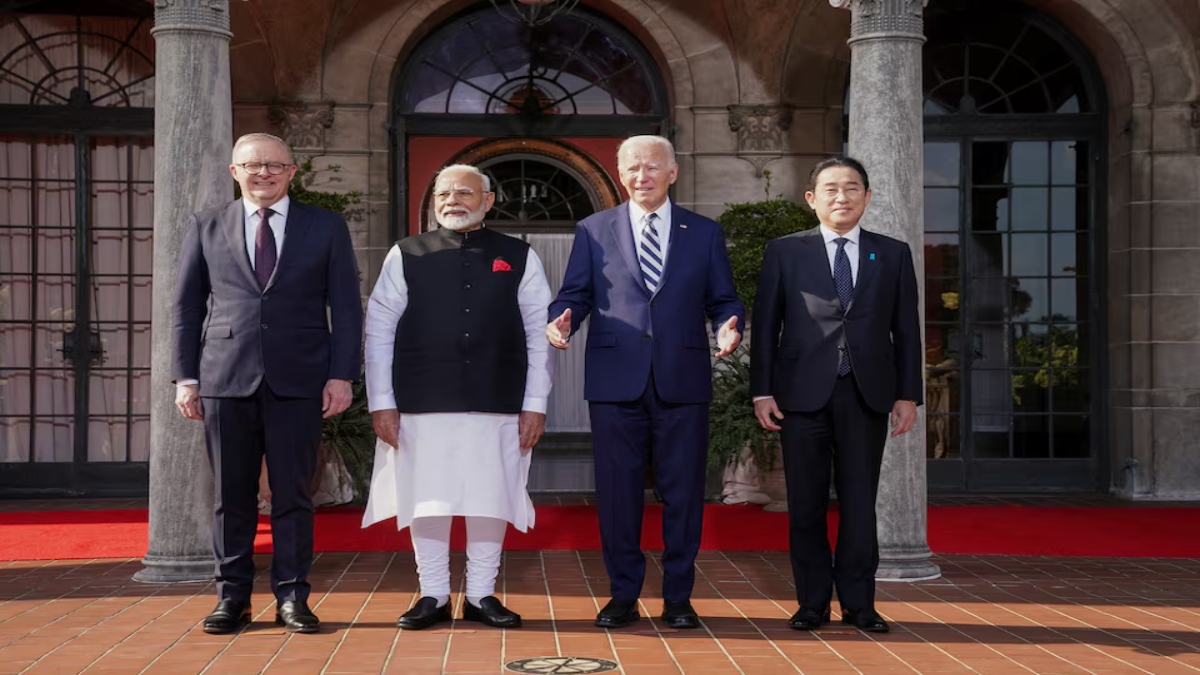Maritime security in the Indo-Pacific has become a critical concern due to China’s increasingly aggressive manoeuvres, particularly in the South China Sea. China continues to assert its territorial claims over nearly 90 per cent of the South China Sea through the so-called “nine-dash line”, which extends far beyond its internationally recognised borders.
In recent months, China has deployed its coast guard and military vessels to enforce these claims. It has led to frequent confrontations with the Philippines, Vietnam, and other Southeast Asian nations. Notably, China’s installation of floating barriers and the construction of artificial islands near the Sabina Shoal, just 150 km from the Philippines’ Palawan Island, have further escalated tensions. In addition, China has empowered its coast guard to detain foreign vessels in disputed waters. This, however, violates the United Nations Convention on the Law of the Sea (UNCLOS) and threatens the freedom of navigation, which is essential for international trade.
China’s maritime expansion is part of its broader “gray-zone” strategy — actions that stop short of armed conflict but are intended to gradually expand control without triggering direct military responses from the international community. This includes the use of civilian fishing vessels as part of its maritime militia. Such tactics present a serious challenge to regional sovereignty, prompting a recalibration of security strategies by affected countries and their allies, particularly the members of the Quad.
In light of these rising tensions, Quad’s joint maritime security efforts are emerging as a key counterbalance to China’s aggressive stance in the Indo-Pacific. By working together to improve coordination, share intelligence, and enhance naval presence, the Quad members aim to safeguard critical shipping routes and protect smaller nations from being bullied into submission by Beijing. This cooperation blends military power with diplomatic outreach. The goal is to ensure that international laws, particularly the UNCLOS, are respected and that nations in the region aren’t forced into compromises over their sovereignty.
The recent Quad Summit in September 2024 yielded several important outcomes focused on bolstering maritime security across the Indo-Pacific, as the four nations — India, the US, Japan, and Australia — continue to counter regional threats, particularly from China’s assertive activities.
Impact Shorts
More ShortsIn addition to the key outcomes previously discussed, several more aspects emerged as vital to the region’s maritime security:
Indo-Pacific Partnership for Maritime Domain Awareness (IPMDA): Originally launched in 2022, the IPMDA has now been expanded to provide advanced tools, such as real-time radio frequency and electro-optical data, allowing over two dozen nations in the Indo-Pacific to monitor illegal fishing and unlawful maritime activities in their Exclusive Economic Zones (EEZs).
In 2024, the Quad plans to incorporate advanced analytical software to further sharpen maritime monitoring capabilities, reflecting a deeper integration of cutting-edge technology to counter emerging threats.
Maritime Training (MAITRI): This newly introduced initiative aims to provide technical and operational training to Indo-Pacific partners, enabling them to maximize the IPMDA tools. By 2025, India will host the first MAITRI workshop, focusing on strengthening maritime security operations through comprehensive legal, technical, and enforcement training across the region.
Indo-Pacific Logistics Network: The Quad has also introduced a logistics network pilot project aimed at pooling member countries’ airlift capacities. This effort is intended to enhance response times to natural disasters in the Indo-Pacific, showcasing the Quad’s commitment to humanitarian efforts alongside maritime security.
Coast Guard Cooperation: The first-ever “Quad-at-Sea” Ship Observer Mission, slated for 2025, will see personnel from Japan, Australia, and India boarding US Coast Guard vessels in the Indo-Pacific. This initiative aims to enhance interoperability among the coast guards of these nations, marking a significant step forward in multilateral maritime safety operations.
Multinational Data Integration: The Quad is moving towards enhanced multinational data integration, making use of satellite imagery, advanced electro-optical sensors, and cutting-edge artificial intelligence-driven maritime tracking systems. These systems aim to provide a more comprehensive and accurate picture of activities across vast stretches of the Indo-Pacific, allowing real-time responses to unlawful actions like illegal fishing and militarisation of disputed territories.
Cybersecurity in Maritime Operations: The summit last week also highlighted the need for securing maritime communication systems, particularly those involved in monitoring and navigation, against growing cyber threats. Given the increasing digitisation of maritime operations, the Quad countries are set to work more closely on safeguarding data networks from cyber-attacks, which could disrupt maritime domain awareness or compromise response times to illegal activities.
Infrastructure Investments: The Quad has made progress in promoting resilient port and undersea cable infrastructure across the region. In 2024, over $140 million has already been committed to projects designed to enhance port capacities and protect undersea cable networks that are critical for data transmission in the Indo-Pacific. These infrastructure developments are essential not only for economic connectivity but also for maintaining maritime security.
Increased Involvement of ASEAN Nations: A key theme in 2024 is fostering stronger ties with the Association of Southeast Asian Nations (ASEAN). Quad members have ramped up their efforts to involve ASEAN countries in shared maritime security frameworks, offering them access to advanced technology, training, and operational support. This is crucial as many ASEAN nations, particularly the Philippines, Vietnam, and Indonesia, are at the frontlines of maritime disputes with China.
Despite these advances, additional measures are needed. The Quad should prioritise strengthening international legal frameworks like UNCLOS to address gray-zone tactics employed by China, which bypass direct conflict but undermine regional stability. A more robust economic engagement strategy would help Indo-Pacific nations resist economic coercion and align with the Quad’s security objectives.
Aditya Sinha (X: @adityasinha004) is an Officer on Special Duty, Research at the Economic Advisory Council to the Prime Minister of India. Views expressed in the above piece are personal and solely those of the author. They do not necessarily reflect Firstpost’s views.
)